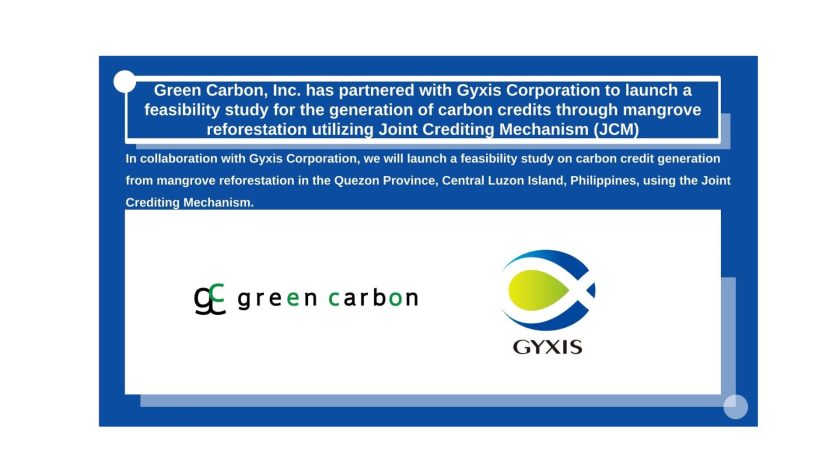Green Carbon Inc. (CEO: Jun Okita, hereinafter referred to as Green Carbon) has partnered with Gyxis Corporation (CEO: Keiji Tanaka, hereinafter referred to as Gyxis) to launch a feasibility study (hereinafter referred to as the “project”) for the generation of carbon credits through mangrove reforestation utilizing Joint Crediting Mechanism (JCM※1). The project will be conducted mainly in the Quezon Province, Central Luzon Island, Philippines.
〇For inquiries regarding this project, please contact us from the link below:
Background and Overview of the Feasibility Study Between the Two Companies
Green Carbon engages in the generation of nature-based carbon credits, mainly in Southeast Asia, and develops a wide range of nature-based carbon credit creation projects which include forest conservation, paddy fields, mangrove reforestation, cow burp reduction, and biochar projects. In the Philippines, Green Carbon is collaborating with local universities and leading companies to form projects for paddy field, biochar, mangrove restoration, and afforestation activities.
Gyxis is engaged in the production, storage, transportation, trading, as well as imports and exports of LP gas in Japan and overseas. Additionally, they promote the adoption and expansion of carbon neutral LP gas by offsetting greenhouse gas emissions expected to be generated across the LP gas value chain from its production to its consumption (combustion), utilizing J-credits and voluntary credits. In order to meet the needs for new frameworks and environmental measures aimed towards future greenhouse gas reduction, Gyxis has taken a further step by partnering with Green Carbon to initiate a preliminary study for the creation and sale of JCM credits.
This project will be conducted mainly in the Quezon Province, Central Luzon Island, Philippines. It will focus on the afforestation and conservation across up to 5,000 hectares of mangrove forests which had been degraded due to factors, such as logging and natural disasters, and the generation of carbon credits. Partnering with local universities, we will conduct field surveys on soil characteristics and tree species to identify sites for reforestation, determine the scale of reforestation, select suitable species, and to gauge the impact on biodiversity, in addition to pursuing the possibility of obtaining JCM credits between Japan and the Philippines.
Carbon Credits derived from mangroves, also referred to as blue carbon (carbon captured by marine ecosystems), are gaining attention for its significant contribution to climate change mitigation. This is because, compared to terrestrial forests, mangroves are able to capture and store more carbon dioxide per unit area. Beyond their role in mitigation of climate change, mangroves offer several other benefits, such as preserving biodiversity, improving water quality, and serving as natural barriers to prevent tidal waves and tsunamis.
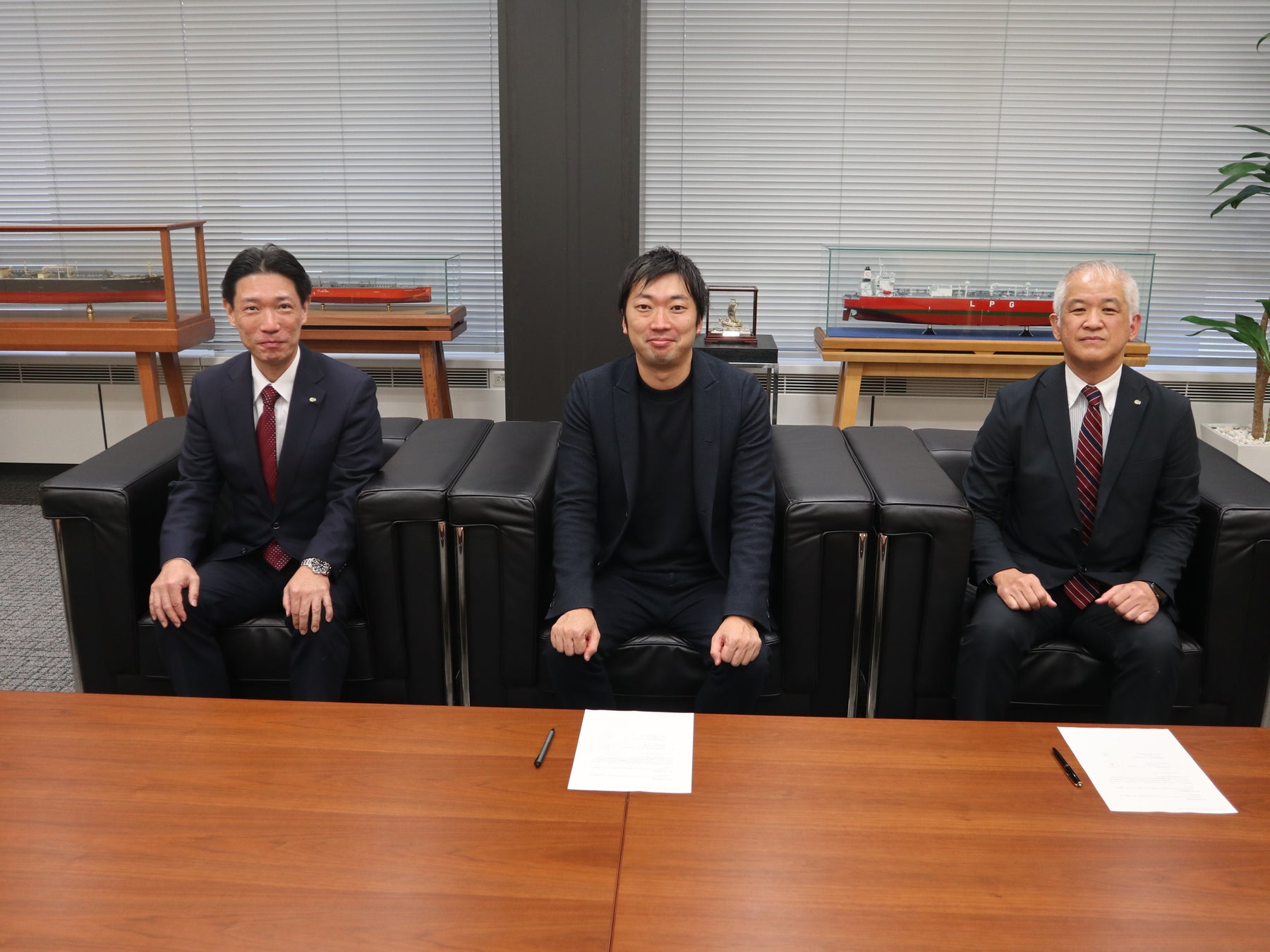
〇Joint survey between the two companies (center: Green Carbon, Inc. CEO Okita, left: Gyxis Corporation, Head of the Green Strategy Office of the Corporate Planning Division Tanaka, right: Gyxis Corporation, Executive Officer Sugiura)
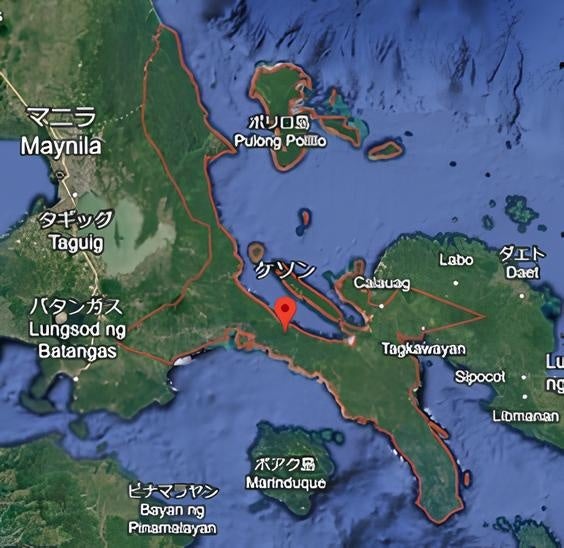
〇Survey area for this project (proposed reforestation area)
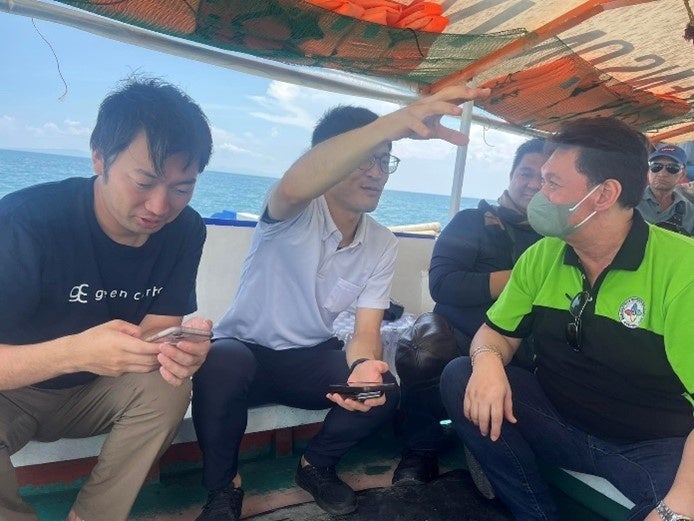
〇Field visit to Quezon Province (left: Green Carbon Inc, CEO Okita, middle: Green Carbon COO Seno, right: Mayor of Quezon Province, Belmonte)
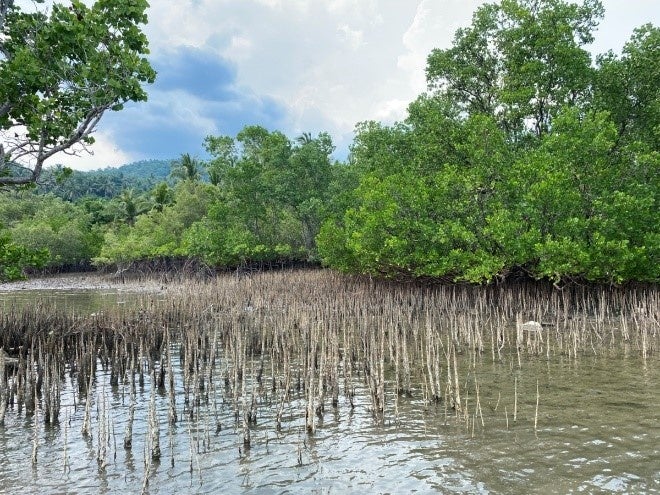
〇native mangrove forests growing on-site
Future prospects
In addition to aiming to generate carbon credits through mangrove reforestation in the Quezon Province, Central Luzon Island, Philippines with Gyxis, Green Carbon also seeks to expand its efforts in Southeast Asia based on its project implementation and achievements with Gyxis.
※1: Joint Crediting Mechanism (JCM)
The mechanism refers to the system which quantitatively evaluates Japan’s contribution to greenhouse gas emission reductions and absorptions through the dissemination of advanced decarbonization technologies and implementation of measures in developing countries. It is also used to help Japan achieve its NDC. In addition to collaboration between governments, there is also a system for private sector JCM between the private sector and the national government.
◆Green Carbon, Inc.
Representative : Jun Okita, CEO
Location : Isal AKASAKA607, 5-2-33 Akasaka, Minato-ku, Tokyo
Establishment : December 2019
Business : Carbon credit creation and sales business, agriculture-related business, environment-related business, other related businesses and ESG consulting business
Website : https://green-carbon.co.jp/
◆About Green Carbon, inc.
Green Carbon operates with the vision of “Saving the Earth with the Power of Life”, providing comprehensive support from carbon credit creation, registration, to sales. Additionally, we are involved in agriculture-related businesses, research and development, ESG consulting. Among others. Our main focus is on generation carbon credits through methane gas reduction in rice paddies, where we have obtained certification for J-Credits, the first and largest in Japan (approximately 6,220 tons), and plan to expand to around 50,000 hectares in the fiscal year 2024. We also offer a service called “Agreen” that integrates credit registration, application, and sales into one platform, simplifying procedures such as application registration and document preparation, thus reducing workload for credit creators.
◆Gyxis Corporation
CEO:Keiji Tanaka, President and Representative Director
Location:5-36-7 Shiba, Minato-ku, Tokyo
Established:April 2015
Business:the manufacturing, storage, transportation, trading, as well as import and export of LP gas
◆About Gyxis Corporation
On April 1, 2015, Cosmo Oil Co, Ltd. (now Cosmo Energy Holdings), Showa Shell Sekiyu (now Idemitsu Kosan due to business integration), Sumitomo Corporation, and TonenGeneral Sekiyu (now ENEOS through a business integration leading to JXTG Energy) merged their LP gas businesses to establish an LP gas import and wholesale company.
In addition to operating five production production bases (contracted bases) in Japan, Gyxis works with its overseas locations in London, Singapore, and Houston to import LP gas from countries such as the United States, Canada, and the Middle East. Furthermore, it supplies LP gas throughout Japan through its bases, including six import terminals and five secondary bases, as well as through partnered locations.

